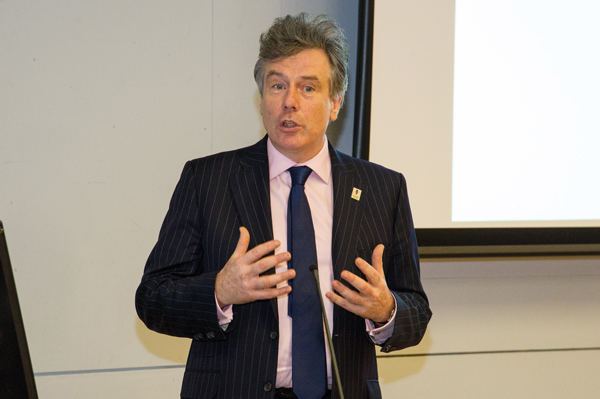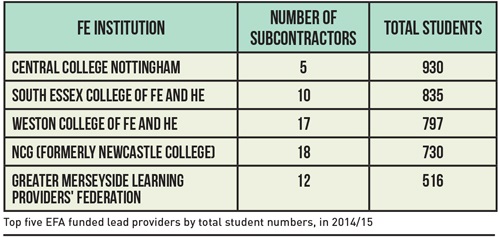The government announced on January 24 that it would legally force schools to let FE providers talk to students about the benefits of apprenticeships, as part of a review. Deirdre Hughes reflects on progress being made in this area.
I welcome the government’s announcement to publish a new careers strategy.
For more than three years, the government has received a series of evidence-based reports indicating the careers system in England is fragmented and incoherent (for example Ofsted, 2013; National Careers Council, 2013 & 2014; Pearson, 2013, British Chamber of Commerce, 2015).
A key element missing in all recent announcements from the Department for Education (DfE) and the Department for Business, Innovation and Skills (BIS) is the role of career development professionals trained and qualified to provide independent and impartial careers guidance.
Firstly, we heard about more employers going into schools, then Jobcentre advisers, then mentors and now apprenticeship providers.
Where do career development professionals fit into current thinking?
Time is of the essence, with yet another cohort of young people missing out this year
Schools are increasingly acknowledging their responsibility to guide students in their career development.
The guidance provided to schools in England from government focuses, for the most part, on helping students towards their academic achievement, and not on helping them develop competencies to manage their future career.
While some schools, colleges and local authorities are doing reasonably well, many institutions need to rise to the challenge of meeting their statutory and non-statutory duties to provide impartial and independent careers guidance.
In countries such as Austria, Finland, Germany and Switzerland, these issues are addressed by ensuring that careers information, advice and guidance (CIAG) feature prominently in their education and training systems from an early age.
For example, a 2009 Organisation for Economic Co-operation and Development report said a key strength of the Swiss vocational education training system was the integration of school and work based learning, with information on the benefits of both communicated between them.
London has made an excellent start in making explicit what a good careers offer looks like for young people across the city.
However, outside of London, many local enterprise partnerships are getting on with shaping their own local provision.
Time is of the essence, with yet another cohort of young people missing out this year on having access to good quality careers information, advice and guidance.
The new Careers and Enterprise Company is employer-led and independent of government.
It hopes to position itself at the heart of the careers and enterprise ecosystem — as a ‘market maker’ with funding provided from government.
The National Careers Service also has a formal ‘Memorandum of Understanding’ with the new company (it had a 5 per cent allocated budget from the Skills Funding Agency for ‘brokerage services’ to schools and colleges).
In December last year, Skills Minister Nick Boles indicated in a Skills Funding Letter, April 2016 – March 2017, that the National Careers Service should be “re-focussed on the new priority groups, young people aged 19-23 not in touch with schools/colleges, lower skilled adults aged 24 plus and adults (25 plus) with learning difficulties and disabilities… to help citizens make informed choices about learning and work and determine their career pathway and suitability for programmes including apprenticeships and traineeships as well as other learning and skills programmes intended to boost UK productivity”
This shift in policy represents a potential further reduction in trained and qualified career development professionals supporting local schools and colleges with their careers offer to young people, teachers and parents/carers.
The Careers & Enterprise Company is part of the solution in transforming the provision of careers, enterprise and employer engagement experiences for young people.
It plans to “launch a series of campaigns to stimulate debate, increase collaboration and raise aspirations.”
In reality, England does not need a series of costly campaigns.
Instead, government should assure quality control in the congested marketplace and take steps to ensure independent and impartial careers guidance is available to all young people.



